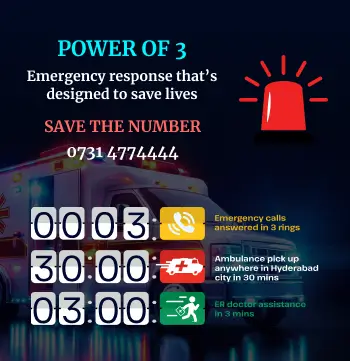Heart Problem
Heart problems often develop quietly before you notice any warning signs. Millions of people die from heart disease each year, making it the leading cause of death.
You might think heart problems always announce themselves with dramatic chest pain, but that's not usually how it works. Many heart conditions produce subtle signals that are easy to dismiss as something else entirely.
Chest discomfort remains the most recognised symptom, but heart problem signs can vary quite a bit. You might experience shortness of breath and pain in your neck, jaw, throat, upper belly or back instead. If you're a woman, older adult, or have diabetes, you may have little or no chest pain during a heart event, which makes recognising the problem much harder.
Sometimes, the early signs show up in ways you wouldn't expect. Extreme tiredness, swollen ankles, irregular heartbeats, feeling sick to your stomach, dizziness, and pain that spreads to your arm all deserve attention. Many heart attacks actually develop with few symptoms, and doctors only discover them later during routine check-ups.
That's why understanding these different heart problem symptoms matters so much for getting help when you need it most.
What is Heart Disease?
Heart disease includes various conditions that affect your heart and blood vessels. It's an umbrella term that covers coronary artery disease, arrhythmias, heart valve problems, and heart muscle diseases.
What are the Types of Heart Disease?
Coronary artery disease (CAD) is among the most prevalent types, affecting the major blood vessels that supply your heart muscle. Other heart conditions include:
- Arrhythmias – irregular heartbeats that can cause fluttering feelings in your chest.
- Heart failure – when your heart can't pump enough blood.
- Congenital heart defects – heart problems you're born with.
- Heart valve disease – problems with valves opening and closing properly.
- Cardiomyopathy – disease of the heart muscle.
What are the Symptoms of Heart Disease?
Heart disease symptoms vary depending on your specific condition. Common signs include:
- Chest pain or discomfort
- Shortness of breath
- Pain in your neck, jaw, throat, upper belly or back
- Swollen ankles from fluid buildup
- Extreme fatigue
- Irregular heartbeats or palpitations
What Causes Heart Disease?
Different heart conditions develop from various causes.
Coronary artery disease arises when plaque builds up in your arteries, reducing blood flow. Other causes include:
- Genetic factors
- Infections
- Certain medications
- Substance use, including alcohol
- High blood pressure
What Increases Your Risk for Heart Disease?
Several factors can raise your susceptibility to developing heart disease:
- Age (especially after 55 for men, after menopause for women)
- Family history (particularly if your parents developed it early)
- Smoking
- A diet with excessive fats, salt and sugar
- Physical inactivity
- High blood pressure, cholesterol, and diabetes
What Complications Can Heart Disease Cause?
Without treatment, heart disease can lead to serious complications. These include heart failure, where blood backs up in your veins; heart attacks, when blood supply gets blocked completely; stroke, if blood clots travel to your brain; and sudden cardiac arrest, where your heart stops beating. Other complications include kidney damage, liver problems & peripheral artery disease that affects blood flow to your limbs.
How is Heart Disease Diagnosed?
Your cardiologist will start with a physical examination and ask about your medical history. They will listen to your heart with a stethoscope and may order tests to get a clearer picture:
- Electrocardiogram (ECG) records the electrical signals travelling through your heart
- Echocardiogram (ECG) employs sound waves to create images of your beating heart
- Stress tests monitor how your heart works during physical activity
- Blood tests check for proteins that show heart damage
- Cardiac catheterisation examines blockages in your coronary arteries
What are the Treatment Options?
Treatment depends on your specific condition & how severe it is. Your doctor might recommend:
- Medications to control your cholesterol, blood pressure, and heart rhythm.
- Lifestyle changes, including what you eat and how much you exercise.
- Medical procedures (e.g. angioplasty, which is done to open blocked arteries).
- Surgery like bypass surgery or valve replacement if your condition is severe.
When should I See a Doctor?
You should seek immediate medical attention if you experience:
- Chest pain that lasts more than a few minutes
- Shortness of breath with very little activity
- Unexplained fainting or severe dizziness
- Pain spreading to your arm, neck, jaw or back
- Irregular heartbeats with dizziness
How can I Prevent Heart Problems?
Many heart conditions can be prevented through simple changes:
- Eat a balanced diet with an optimal quantity of fruits, vegetables, whole grains and lean proteins.
- Stay active—try for at least 150 minutes of exercise each week.
- Avoid tobacco completely and limit how much alcohol you drink.
- Regular check-ups help catch problems early, especially if you have risk factors like family history, diabetes, or high blood pressure.
- Your heart runs on good lifestyle choices. Relaxation techniques and seven to nine hours of quality sleep each night complete your heart protection strategy.
Conclusion
Heart problems affect millions of people, but recognising the warning signs in the very nascent stages can make all the difference. You now know that symptoms don't always look like what you see in films - chest pain is common, but you might experience fatigue, shortness of breath, or swelling instead.
If you have risk factors like family history, diabetes, or you're getting older, pay attention to how your body feels. Heart problem symptoms in females and older adults are different. They especially need to watch for symptoms that might not include obvious chest pain.
The good news is that most of the heart problems can be prevented or managed effectively. Eating well, staying active, and avoiding tobacco all help protect your heart. Regular preventive check-ups with your doctor can catch problems before they become serious.
Your heart works every moment of your life without you having to think about it. Don't ignore warning signs - if something feels wrong, it's worth getting checked out. You know your body better than anyone else.
FAQs
Your body often sends warning signals before a serious heart problem develops, but these signs can be easy to miss.
Chest discomfort remains the most well-known warning sign. This might feel like pressure, squeezing, fullness or pain in the mid-region of your chest that lasts more than a few minutes.
You should also watch for:
- Pain or discomfort in your arms, back, neck, jaw or stomach
- Difficulty breathing with or without chest discomfort
- Breaking out in a cold sweat with light-headedness
- Unusual tiredness, even during simple activities
- Swelling in your legs, ankles or feet from fluid buildup
- Irregular heartbeats or feeling your heart racing
Women often feel extreme anxiety, nausea, or unusual tiredness rather than typical chest pain.
2. What precautions can I take to avoid heart disease?
Simple yet powerful changes to daily habits can protect your heart. Small adjustments make the biggest impact.
Your food choices matter greatly. Salmon & walnuts provide essential omega-3 fatty acids. Fresh fruits, vegetables and whole grains should replace processed foods loaded with salt, sugar and unhealthy fats.
Physical activity plays a crucial role. A 30-minute brisk walk five days weekly reduces your risk substantially.
Quitting smoking helps your heart immediately.
Keep these healthy numbers as targets:
- Total cholesterol below 200 mg/dL
- Blood pressure at or below 120/80 mmHg
- BMI between 18.5 and 24.9





